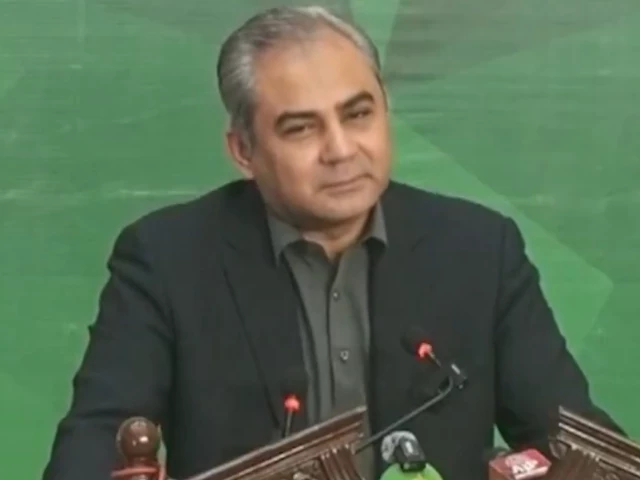Islamabad:
The country’s top security -czar has finally noticed the illegal sale of citizens’ private data on various internet platforms after Express News highlighted the question in an exclusive report. Express News had brought the question into the limelight first in October 2024.
Express News revealed on Sunday that despite its previous report, private data about Pakistani citizens – from federal ministers and senior government officials to ordinary people – is for sale on various sites without any government authority taking any action.
According to the report, dozens of websites are available online where citizens’ data is openly listed for sale with fixed rates. On these platforms, the location of mobile phones is available for the RS500, details of mobile data registration for RS3,500 and foreign travel information for RS5,000.
They also offer information linked to an international mobile equipment identity (IMEI) number for RS25,000, while colored copies of Citizens’ Computerized National Identity Cards (CNIC) are also sold on these sites.
The IMEI number is a unique code that identifies any mobile phone. Usually it is used by telecom operators to detect a device on the network, block stolen phones or help with recovery. But if this number falls into the wrong hands, it can be abused in several ways.
One of the biggest risks of leaking an IMEI number is tracking. With access to telecom databases, criminals can use an IMEI number to track movements and location of a phone.
Another danger is cloning where IMEI is copied on another device that allows someone to emulate a phone on the network. In some cases, a phone could even be mistakenly reported as stolen and blocked, making it useless on mobile networks.
When an IMEI number is combined with other leaked personal information, such as identity card copies or call registers, it becomes even more dangerous. Criminals can build a detailed profile of a person’s contacts, habits and movements and then utilize this data for fraud, fraud or extortion.
The report emphasized that criminal groups may be using this data for financial fraud, deception and harm people. In some cases, individuals may not even know that their identity card had been abused – for example, in legal bail processes or false transactions involving property.
It questioned why the practice of selling data still took place uncontrolled despite the fact that they had already been highlighted in October 2024.
Following the broadcast of this news report, Interior Minister Mohsin Naqvi noted the case and instructed the National Cyber Crime Investigation Agency (NCCIA) to conduct a study.
The NCCIA general director later formed a special investigative team and ordered it to submit his report within 14 days. “The team has been tasked with investigating all aspects of the data leak, and based on its findings, those involved will be identified and brought to trial,” a spokesman for the Interior Ministry said.



